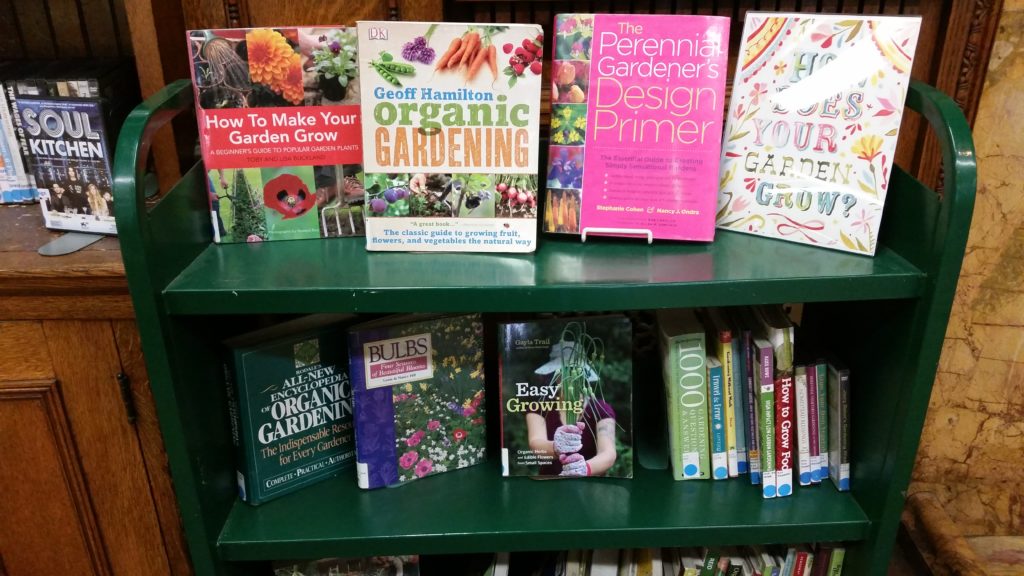Go Green with the Library: Natural Fertilizers
May 20, 2016

You can check out our collection of gardening books on display this month at the Albright Memorial Library.
Last month, we celebrated Earth Day by learning what kinds of plants are native to our area. This month, we’ll break down the best natural fertilizers to use on your gardens to keep them healthy all year.
Planet Natural’s website has a helpful guide to different types of natural fertilizers. There are three main kinds that they discuss: slow release (dry), starters, and liquid fertilizers.
Slow Release (dry) fertilizers are suited for broad area coverage. They release nutrients slowly and work best when you use water to get them started.
Starter Fertilizers are suited for new plants and seedlings. They have balanced amounts of nitrogen, phosphorus, and potassium from natural sources. They also include probiotics and mycorrhizae.
Liquid fertilizers are used for established plants in pots and gardens. They work immediately to replenish lost nutrients in the soil.
The Farmers’ Almanac lists everyday items that can be used as a natural fertilizer for your gardens. A few items they list include banana peels, grass clippings, weeds, compost, manure, tree leaves, coffee grounds, and egg shells (for their calcium).
Besides being a natural ice melt, Alfalfa Meal also makes a good fertilizer. You can find bags of alfalfa meal at many gardening stores.
Have you ever wondered if tea bags can be used as fertilizer? Gardening Know How puts the question to rest. According to their website, Tea bags can be used for fertilizer, but you need to watch the kind of bag the tea is in. If it is slippery to the touch, then the bag will not be able to decompose in the ground. You can make a slit in the tea bag and toss the insides into your dirt surrounding the plants. Unfortunately, the tea bag will have to be thrown away, but the good news is that many teas are made with decomposable bags now.
You can also visit your local gardening stores to know which fertilizers to use in your garden. The library has many books to help you start and maintain your garden. Here are a few books you can check out today:
Organic Gardening by Geoff Hamilton and Nick Hamilton
Organic Kitchen Gardening: a guide to growing produce in small urban areas by Barbara Segall
How to Make Your Garden Grow by Toby and Lisa Buckland, Howard Rice

